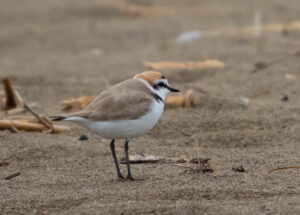Forum - Conservation Evidence Do the weaknesses and strengths of experts and local volunteers affect the conservation actions focused on nesting plovers? Constructive considerations from the Italian beachfront line
Corrado Battisti, Marco Gustin, Alessandro Polinori
Abstract:
Both the high-level strategies promoted by experts of public Conservation Agencies, and the small-scale tactics implemented by local conservation groups show strengths, weaknesses, opportunities and threats that can affect the effectiveness of the efforts aimed at the conservation of plovers nesting on sand dunes (Charadrius alexandrinus and Charadrius dubius). Here we propose a SWOT analysis, focusing on critical conditioning factors that should contribute towards rendering effective the local conservation strategies: (1) experts should learn the tools of project management, thus avoiding both ‘analysis-paralysis’ and ‘epistemic arrogance’ towards local volunteers, and using a simplified scientific language to communicate smart operational guidelines to the people; (2) editorial times necessary to draft guidelines should be shortened because sand-dune bird species urgently need tools for rapid actions; (3) in conservation strategies, ‘monitoring’ means verifying changes in an environmental target in the expected direction defined by specific project objectives (it is not only a periodical field sampling of biodiversity targets). In this regard, experts should monitor not only the status of plovers (pairs, nests and chicks) but above all the effectiveness of conservation actions carried out; (4) local volunteers, often highly motivated towards these charismatic species, have scarce knowledge, lack skill and funding availability; therefore constituting an underutilized human potential whichshould be supported and adequately trained by technicians in order to allow a fine-grained pervasive conservation of these declining species.
